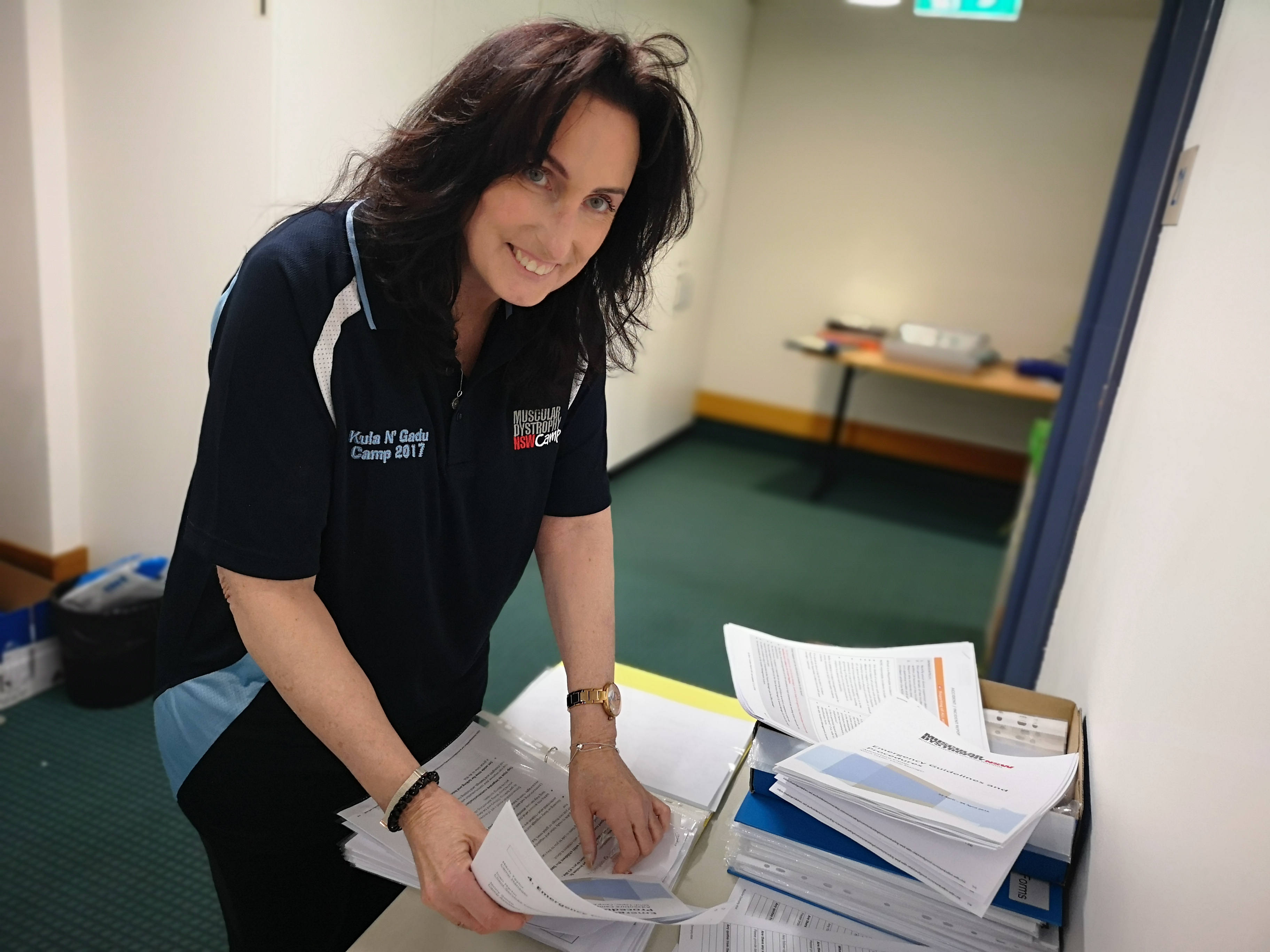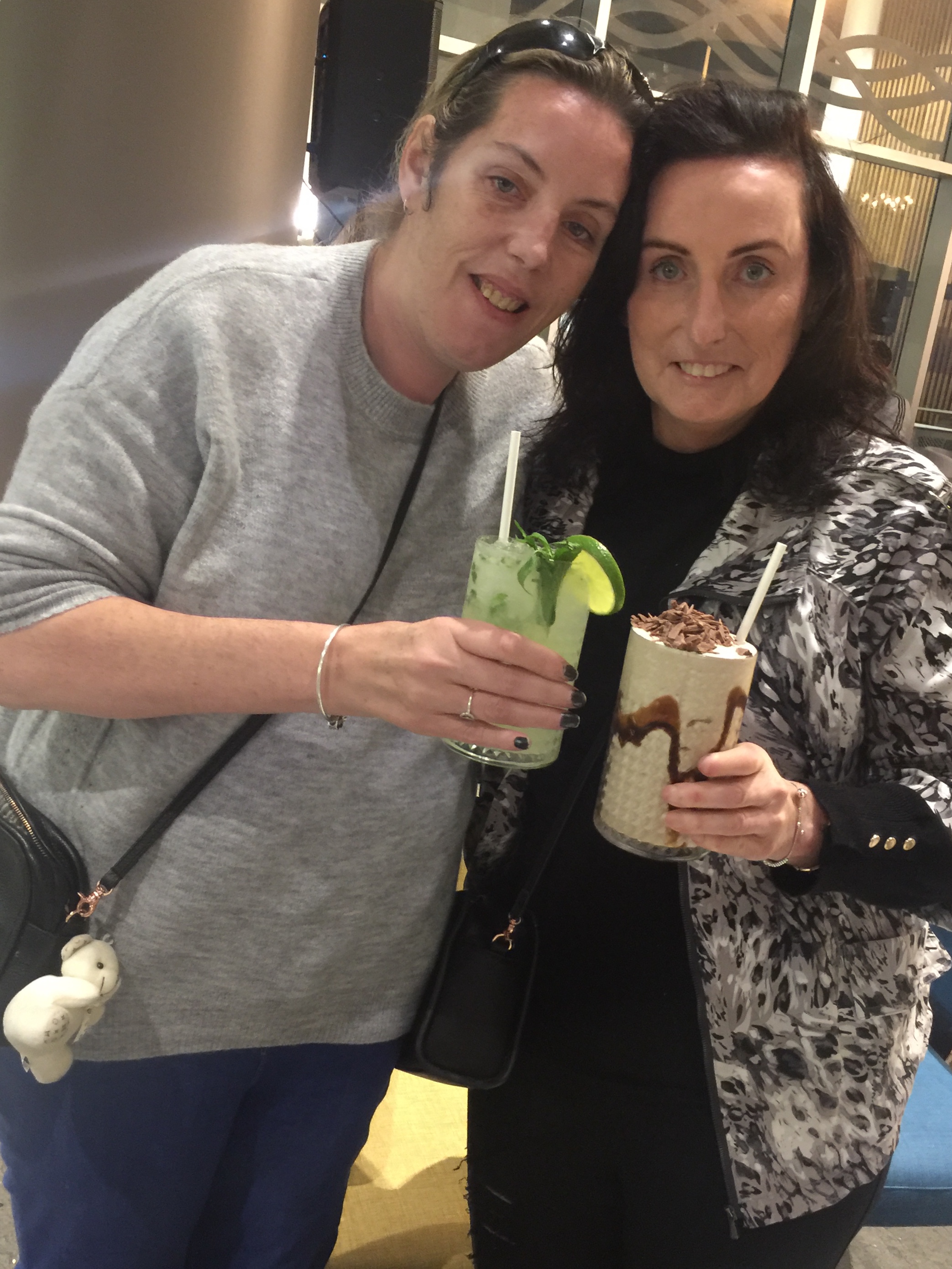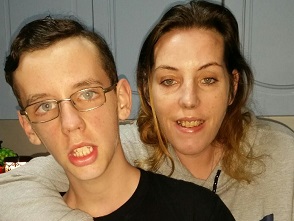This website uses cookies to improve your experience. We'll assume you're ok with this, but you can opt-out if you wish.

Thanks for giving me the opportunity to talk about our story today. My story with MD is our family’s story. My daughter Emma, who is now in her thirties, was diagnosed with a condition called Myotonic Muscular Dystrophy or MMD for short, which is the most common type of Muscular Dystrophy. My grandson Blake also has MMD.

As a child as a baby she was just a very normal healthy baby. We never had any illnesses, we never had sleepless nights so to speak or anything unusual. Emma could ride a bike at 4 with training wheels, could roller skate, and was very active.
I think I probably noticed things in Emma when she was about 10 years old. But the doctor said “No, she’s perfectly fine. No, it’s not this, no, it’s not that”. The first thing that alerted me was when she was playing netball. Her movements, compared to the other girls in the team, were much slower. The way that she passed the ball, and a few other things. She struggled at school and had to work very hard at everything. She was never at the top of the class, but she wasn’t at the bottom either.
Emma’s grandparents were tested for MMD and it turned out that it had come from Emma’s grandfather on the paternal side. He was in his 80s though, and he didn’t know until that stage in his life that he carried the myotonic dystrophy gene. So then all of Emma’s aunts and uncles were tested, the ones that wanted to be tested, and they all carried the gene. Emma’s father was tested and he carried it also. When the gene is passed on to the next generation, we believe the expansion of the gene can become bigger.
Yes, that’s my understanding. Emma’s father didn’t really show any physical symptoms and from what we’re learning about it, MMD can affect different people in different ways, at different times in their life. Up until Emma was in her mid-20s, you probably wouldn’t know what it was unless you knew about myotonic dystrophy, but now she’s older, it’s more prominent.
Yes, she’s become a lot weaker and she’s lost quite a bit of weight. She’s very slow with her movements and gets very tired.
It was only recently that we found out fatigue was part of her condition, because Emma was always very, very tired, but mainly in the day. So yes excessive daytime sleeping can be part of MMD. We weren’t aware of that.
No, she doesn’t use any ventilation, it hasn’t got to that point, but there is a particular tablet, which is called modafinil, and it’s something that we’ve discovered, and actually, they prescribe this to pilots in the air force when they are doing long missions…to keep them awake, and there’s no actual sign of harsh side-effects or anything like that.
Most definitely. I can notice straight away when Emma has a big day and she has to be up for a long time, she’s got doctors appointments, or school things with her children and she knows that she’s got to be awake, I know that when she’s had the tablet. I don’t live with Emma, but I notice straight away, with her speech, it’s not as slow, it’s not as slurry, she’s more switched on, and she’s more alert. So that’s great. She’s probably had that now about a year, it certainly does help.
Emma wasn’t really diagnosed until she was 18 and I think we had probably buried our heads a bit in the sand as well. We didn’t know enough about the condition, really, to know the stages of the progression. It’s only been in the last 10 years or so that we’ve really learnt a lot about it because Emma had her first child, which is my grandson Blake, who is now 16 and he also has the condition. But his expansion is much higher than Emma’s, so he has intellectual disability, plus the physical side of it. But Blake hasn’t gone to the point in his condition where he has significant muscle wasting, so he’s still quite active and mobile.
We’re learning a lot more with him. When he went for his genetic testing at the Children’s Hospital Westmead, I think it was Dr Kristi Jones who asked, “Are you a part of MDNSW?” We’ve had our connection with MDNSW for about 6 years now. We didn’t come in contact with MDNSW early enough, but it’s been a great learning experience, fantastic support, motivation and it’s all been very positive.
Through having contact with MDNSW, we’ve actually met another person who has the condition. Emma was able to go on a weekend retreat where she met another adult with Myotonic MD – that was really important for her. Emma could relate to her and say, “…this has happened to me” and hear, “Oh that’s normal, that’s happened to me before too.”
It’s very funny too because although Emma and Blake have the same condition, things have happened differently for each of them. Blake has different things to how Emma has presented. So it’s pretty unique and individual. Other than our family, we’ve never really had any connection with other people with MD. But just hearing their story and hearing about how they felt about stuff, what sort of things they had noticed, you learn so much from other people and their experiences. And knowing that you’re not alone as well, that there are other people with similar conditions.
The NDIS, too, has opened up a lot of avenues for us as a family. Services are very expensive, so it’s allowed us to have things that we’ve probably only ever dreamed of, or would never have been possible otherwise.

Yes she’s having regular physio because of her muscles, and remedial massage. She’s also able to get out and about in the community, she has a support worker who comes in and takes her shopping because she still wants to do those things. Emma has her workers come in to do her cleaning for her, and she has a nice relationship with them as well, so it gives her time to have a chat with somebody different, have a cup of coffee and go out a little bit as well.
Most definitely, yes. And also with my grandson Blake, we’ve really taken the NDIS on-board as much as we can. It’s just allowed him so many more opportunities. He has speech therapy at school once a week, which has brought him along in leaps and bounds. He’s part of an organisation called Dancing Hearts, which is a dancing group, and he goes twice a week. He loves his dancing, so he goes there with a support worker.
He goes to a mainstream school, in a support unit. His speech therapist goes to the school so that’s easier for him. He does a work experience program at Bunnings now he’s 16, and he also has a support worker who picks him up and takes him horse riding each week.
Yes, that’s with Riding for the Disabled, and because Blake would like to pursue a career working with horses, he’s actually done it all last year and the education department have actually allowed him to have that day as part of his community access.
So that’s something else that’s been possible through NDIS, the support worker again picks him up and takes him. Also his activities with MDNSW, the Adventure Camp and Boccia events have been fantastic for him, which he really looks forward to. Vacation care, he doesn’t go all the time but it gives him the opportunity to go out and do different things in the school holidays.
Yes and Blake’s now coming to an age where he’s learning about his body……we’ve got all the questions there! He’s now being booked into a sexual education lesson which goes for 8 weeks that’s run through Northcott and its specialised trainers that can help him learn.
Look, just take one day at a time. Find the people that can help you straight away. Don’t think, oh we’ll look at that later, or there’s no physical symptoms or, we’ll be alright – because things can happen quickly and can deteriorate rapidly. So try to find the answers, find the organisations that can help you because that’s where you’ll get the support. And they will understand the things that you are going through. It’s easy for someone to say “I know exactly how you feel, I can understand that” – but they don’t really understand, they’ve never been through it.
Don’t try to take on everything. As a mother or a grandmother, you feel you can fix everything… but you can’t. Yeah, and I think that’s what you have to come to terms with sometimes as a parent.
Yes, coping and learning different strategies on ‘how will I deal with that?’ This is what we’re facing now, so this is how we’ll deal with it. And that’s probably the best learning experience. I think too you need to layer, in my case my daughter and my grandchild, I want to layer them with the right people in their lives. As parents we’re never going to be here forever, so I want to know that Emma has the connection with MDNSW and other services, Blake has that connection with MDNSW, that they’re never alone.
This Spinal Muscular Atrophy (SMA) Awareness month, we’re celebrating the people who redefine what’s possible living with a neuromuscular condition. Carolyn is one of them.
Say hello & contact our friendly team today.
Email: info@mdnsw.org.au
Phone: (02) 9888 5711
Freecall: 1800 635 109
Phone: (02) 9888 5711
Freecall: 1800 635 109
Email: info@mdnsw.org.au
Postal Address: PO Box 3071, North Strathfield NSW 2137
Muscular Dystrophy NSW would like to acknowledge the Traditional Custodians of the land on which we live and work, and we pay our respects to their Elders past and present. We extend that respect to all Aboriginal and Torres Strait Islander peoples.
"*" indicates required fields